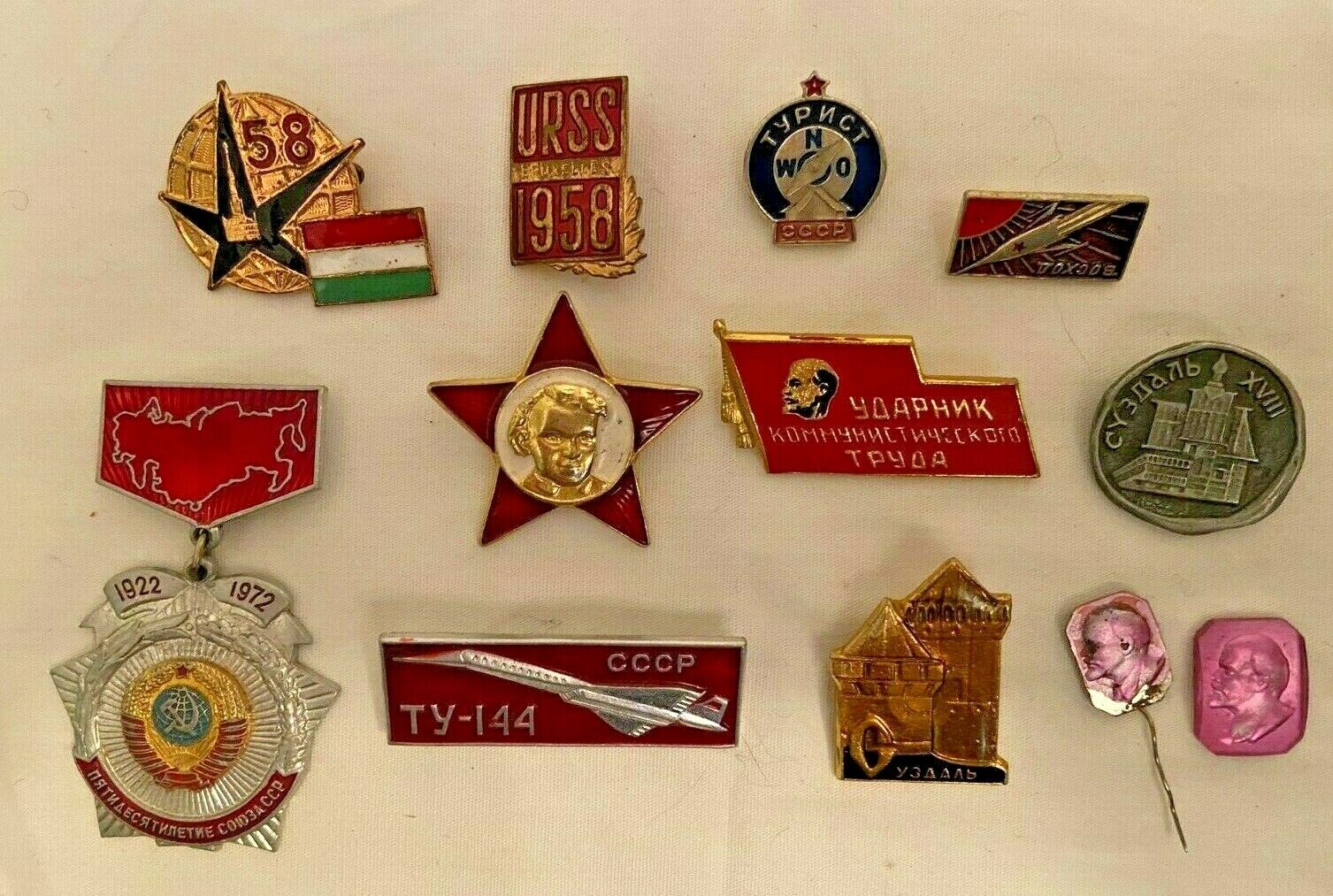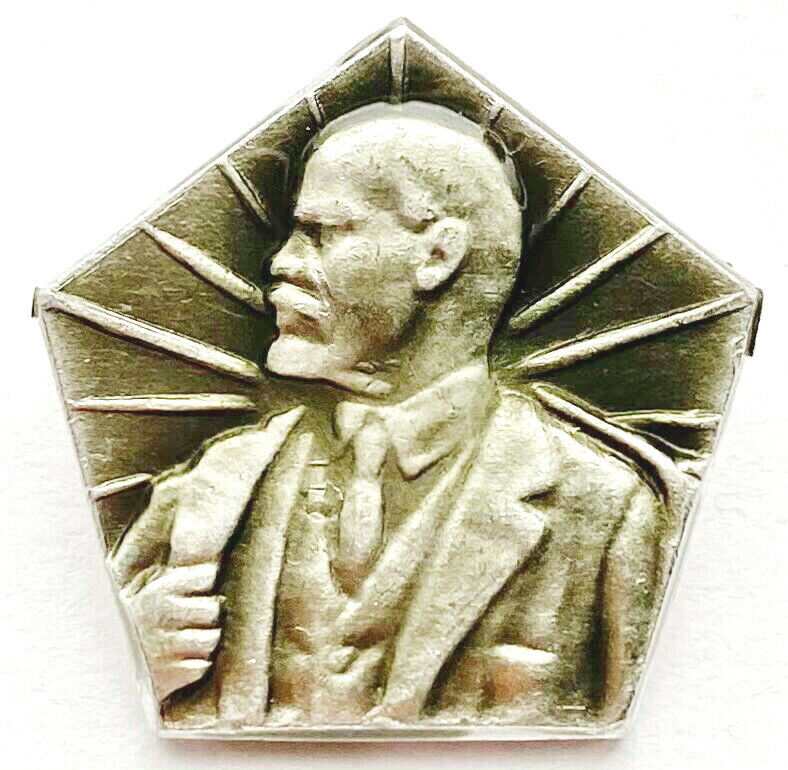-40%
ąśąŚą£ąĢąØąÉ ąĀą×ąöąśąØąĢ 58 čüčéą░čéčīčÅ 25 ą╗ąĄčé ą╗ą░ą│ąĄčĆąĄą╣ ąØąÜąÆąö Treason to the Motherland NKVD Camp
$ 50.16
- Description
- Size Guide
Description
RUSSIA / USSR. Joseph Stalin Era 1924 - 1953 Printed Matter. NKVD Political Documents.ą¤ąĄčĆčüąŠąĮą░ą╗čīąĮčŗą╣ ą║ąŠą╝ą┐ą╗ąĄą║čé ąĖąĘ 3-čģ ą┤ąŠą║čāą╝ąĄąĮč鹊ą▓ 1945 - 1948 ą│ą│. ąĮą░ 18-čéąĖą╗ąĄčéąĮąĄą│ąŠ ą╗ą░čéčŗčłą░ ąóą░ą╗ąĖą▓ą░ą┤ąĖčü ąŚąĄą╣ą▒ąĄčĆą│čü
ą░čĆąĄčüč鹊ą▓ą░ąĮąŠą│ąŠ ąØąÜąÆąö ą▓┬ĀčüąŠą▓ąĄčéčüą║ąŠą╣ ąŠą║ą║čāą┐ą░čåąĖąŠąĮąĮąŠą╣ ąĘąŠąĮąĄ ąōąĄčĆą╝ą░ąĮąĖąĖ┬ĀąĖ ąŠą▒ą▓ąĖąĮčæąĮąĮąŠą│ąŠ ą┐ąŠ čüčéą░čéčīąĄ 58-1ą░ ąĖ 58-2 ą▓ ąĖąĘą╝ąĄąĮąĄ ąĀąŠą┤ąĖąĮąĄ.
1. PW Emergency Evacuation Pass. ąĀą░ąĘčĆąĄčłąĄąĮąĖąĄ ąĮą░ 菹▓ą░ą║čāą░čåąĖčÄ ą┤ą╗čÅ Talivadis ąĖ Anna Sebergs ą▓čŗą┤ą░ąĮąĮąŠąĄ 25.04.1945 ą▓ ą│ąŠčĆąŠą┤ąĄ Ulm.
ąØą░ ąĮąĄą╝ąĄčåą║ąŠą╝ čÅąĘčŗą║ąĄ. ą×ą┤ąĮąŠčüč鹊čĆąŠąĮąĮąĖą╣ ą┤ąŠą║čāą╝ąĄąĮčé. ąĀą░ąĘą╝ąĄčĆ 15 čģ 11 čüą╝.
2. ąØąÜą× ąĪąĪąĪąĀ.
ąøą░ą│ąĄčĆčī Ōä¢256
. 22.III.1946.
ąĪą¤ąĀąÉąÆąÜąÉ
ąŠ č鹊ą╝ čćč鹊 ąŚąĄą╣ą▒ąĄčĆą│čü ąóą░ą╗ąĖą▓ą░ą┤ąĖčü ą┐ąŠčüčéčāą┐ąĖą╗ ą▓ ą╗ą░ą│ąĄčĆčī 22.III.1946, ą┐čĆąŠčłčæą╗ ą┐ąĄčĆą▓ąĖčćąĮčāčÄ
čüą░ąĮąĖčéą░čĆąĮčāčÄ ąŠą▒čĆą░ą▒ąŠčéą║čā ąĖ ą╝ąŠąČąĄčé ą▒čŗčéčī ą┤ąŠą┐čāčēąĄąĮ ą▓ ąŠą▒čēąĄąČąĖčéąĖąĄ ą╗ą░ą│ąĄčĆčÅ, ą┐čĆąŠčłčæą╗ ąĘą░ą▓ąĄčĆčłą░čÄčēčāčÄ čüą░ąĮ. ąŠą▒čĆą░ą▒ąŠčéą║čā ąĖ ą╝ąĄą┤ąĖčåąĖąĮčüą║ąĖą╣ ąŠčüą╝ąŠčéčĆ
ąĖ
ą╝ąŠąČąĄčé ą▒čŗčéčī ą┤ąŠą┐čāčēąĄąĮ ą║ ąŠčéą┐čĆą░ą▓ą║ąĄ čü čŹčłąĄą╗ąŠąĮąŠą╝
22.III.1946. ą×ą┤ąĮąŠčüč鹊čĆąŠąĮąĮąĖą╣ ą┤ąŠą║čāą╝ąĄąĮčé. ąĀą░ąĘą╝ąĄčĆ 24.5 čģ 14.5 čüą╝.
3. ąÆą½ą¤ąśąĪąÜąÉ ąśąŚ ą¤ąĀąśąōą×ąÆą×ąĀąÉ. ąśą╝ąĄąĮąĄą╝ ąĪąŠčĹʹ░ ąĪąŠą▓ąĄčéčüą║ąĖčģ ąĪąŠčåąĖą░ą╗ąĖčüčéąĖč湥čüą║ąĖčģ ąĀąĄčüą┐čāą▒ą╗ąĖą║ 26 č乥ą▓čĆą░ą╗čÅ 1948 ą│.
ąÆą×ąĢąØąØą½ąÖ ąóąĀąśąæąŻąØąÉąø ą▓ąŠą╣čüą║ ą£ąÆąö ąøą░čéą▓ąĖą╣čüą║ąŠą╣ ąĪąĪąĀ
čĆą░čüčüą╝ąŠčéčĆąĄą╗ ą┤ąĄą╗ąŠ ą┐ąŠ ąŠą▒ą▓ąĖąĮąĄąĮąĖčÄ ąŚąĄą▒ąĄčĆą│čü ąóą░ą╗ąĖą▓ą░ą┤ąĖčü ąÆą╗ą░ą┤ąĖą╝ąĖčĆąŠą▓ąĖčć
1928 ą│ąŠą┤ą░ čĆąŠąČą┤ąĄąĮąĖčÅ ą┐ąŠ čüčéą░čéčīąĄ 58-1ą░ ąĖ 58-2 ąŻąÜ ąĀąĪążąĪąĀ.
ąŻą¤ąÜ ąÆąŠąĄąĮąĮčŗą╣ ąóčĆąĖą▒čāąĮą░ą╗ ą¤ąĀąśąōą×ąÆą×ąĀąśąø
: ąŚąĄą▒ąĄčĆą│čü ąóą░ą╗ąĖą▓ą░ą┤ąĖčüą░ ąÆą╗ą░ą┤ąĖą╝ąĖčĆąŠą▓ąĖčćą░
ąĮą░ ąŠčüąĮąŠą▓ą░ąĮąĖąĖ čāą║ą░ąĘą░ąĮąĮčŗčģ čüčéą░č鹥ą╣
ą┐ąŠą┤ą▓ąĄčĆą│ąĮčāčéčī ąĘą░ą║ą╗čÄč湥ąĮąĖčÄ ą▓ ąĖčüą┐čĆą░ą▓ąĖč鹥ą╗čīąĮąŠ čéčĆčāą┤ąŠą▓ąŠą╣ ą╗ą░ą│ąĄčĆčī čüčĆąŠą║ąŠą╝ (25) ą┤ą▓ą░ą┤čåą░čéčī ą┐čÅčéčī ą╗ąĄčé.
ąĪčāą┤ąĄą▒ąĮčŗą╣ čüąĄą║čĆąĄčéą░čĆčī ąÆąŠąĄąĮąĮąŠą│ąŠ ąóčĆąĖą▒čāąĮą░ą╗ą░, ą┐ąĄčćą░čéčī ąĖ ą┐ąŠą┤ą┐ąĖčüčī. ą×ą┤ąĮąŠčüč鹊čĆąŠąĮąĮąĖą╣ ą┤ąŠą║čāą╝ąĄąĮčé. ąĀą░ąĘą╝ąĄčĆ 21.5 čģ 15 čüą╝.
Personal Set of 3 Documents 1945-1948 for 18-year-old Latvian Talivadis Zeibergs Arrested by the NKVD
in
the Soviet Occupation Zone
of Germany and Accused under Articles 58-1a and 58-2 of Treason.
1.
PW Emergency Evacuation Pass
. Evacuation permit for Talivadis and Anna Sebergs issued on 25.04.1945 in Ulm.
In German. One-sided document. Size 150 x 110 mm.
2. Peoples Commissariat Defense of the USSR.
Camp No. 256. 22.III.1946. RECEIPT
that Seibergs Talivadis
entered the camp on March 22, 1946, passed the primary sanitization and may be admitted to the camp hostel, passed the final dignity,
processing and medical examination and
can be approved for departure with echelon
on March 22, 1946. One-sided document. Size 245 x 145 mm.
3.
EXTRACT FROM THE JUDGMENT
. In the name of the Union of Soviet Socialist Republics on February 26, 1948
The MILITARY TRIBUNAL
of the troops of the Ministry of Internal Affairs of the Latvian SSR considered the case against
Zebergs Talivadis Vladimirovich born in 1928 in Libava under Articles 58-1a and 58-2 of the RSFSR Criminal Code.
CPC Military Tribunal SAID: Zebergs Talivadis Vladimirovich subject to the above articles to
be imprisoned in a forced labor camp
for a period of (25) twenty-five years.
Judicial Secretary of the Military Tribunal, seal and signature. One-sided document. Size 215 x 150 mm.
ąĪčéą░čéčīąĖ 58-1, 58-1ą░ - 58-1ą│ ąĖ 58-2ŌĆö58-14 ąŻą│ąŠą╗ąŠą▓ąĮąŠą│ąŠ ą║ąŠą┤ąĄą║čüą░ ąĀąĪążąĪąĀ 1922 ą│ąŠą┤ą░ ą▓ čĆąĄą┤ą░ą║čåąĖąĖ 1926 ą│ąŠą┤ą░ ąĖ ą▒ąŠą╗ąĄąĄ ą┐ąŠąĘą┤ąĮąĖčģ čĆąĄą┤ą░ą║čåąĖčÅčģ
čāčüčéą░ąĮą░ą▓ą╗ąĖą▓ą░ą╗ąĖ ąŠčéą▓ąĄčéčüčéą▓ąĄąĮąĮąŠčüčéčī ąĘą░ ą║ąŠąĮčéčĆčĆąĄą▓ąŠą╗čÄčåąĖąŠąĮąĮčāčÄ ą┤ąĄčÅč鹥ą╗čīąĮąŠčüčéčī. ą×čéą╝ąĄąĮąĄąĮą░ ą▓ 1961 ą│ąŠą┤čā. ąÆ ąŠą▒ąĖčģąŠą┤ąĄ ąĖą╝ąĄąĮąŠą▓ą░ą╗ąĖčüčī ┬½58ŌĆæčÅ čüčéą░čéčīčÅ┬╗.
58-1ą░. ąśąĘą╝ąĄąĮą░ ąĀąŠą┤ąĖąĮąĄ
: čĆą░čüčüčéčĆąĄą╗ čü ą║ąŠąĮčäąĖčüą║ą░čåąĖąĄą╣ ąĖą╝čāčēąĄčüčéą▓ą░, ąĖą╗ąĖ 10 ą╗ąĄčé čü ą║ąŠąĮčäąĖčüą║ą░čåąĖąĄą╣ ąĖą╝čāčēąĄčüčéą▓ą░.
58-2. ąÆąŠąŠčĆčāąČčæąĮąĮąŠąĄ ą▓ąŠčüčüčéą░ąĮąĖąĄ
, ą╗čÄą▒ąŠąĄ ą┤ąĄą╣čüčéą▓ąĖąĄ čü ąĮą░ą╝ąĄčĆąĄąĮąĖąĄą╝ ąĮą░čüąĖą╗čīčüčéą▓ąĄąĮąĮąŠ ąŠčéč鹊čĆą│ąĮčāčéčī ąŠčé ąĪąŠą▓ąĄčéčüą║ąŠą│ąŠ ąĪąŠčĹʹ░ ą╗čÄą▒čāčÄ čćą░čüčéčī ąĄą│ąŠ č鹥čĆčĆąĖč鹊čĆąĖąĖ
ąĖą╗ąĖ ą▓č鹊čƹȹĄąĮąĖąĄ čü čåąĄą╗čīčÄ ąĘą░čģą▓ą░čéąĖčéčī ą▓ą╗ą░čüčéčī: čĆą░čüčüčéčĆąĄą╗ ąĖą╗ąĖ ąŠą▒čŖčÅą▓ą╗ąĄąĮąĖąĄ ą▓čĆą░ą│ąŠą╝ čéčĆčāą┤čÅčēąĖčģčüčÅ čü ą║ąŠąĮčäąĖčüą║ą░čåąĖąĄą╣ ąĖą╝čāčēąĄčüčéą▓ą░ ąĖ čü ą╗ąĖčłąĄąĮąĖąĄą╝ ą│čĆą░ąČą┤ą░ąĮčüčéą▓ą░
čüąŠčĹʹĮąŠą╣ čĆąĄčüą┐čāą▒ą╗ąĖą║ąĖ ąĖ, č鹥ą╝ čüą░ą╝čŗą╝, ą│čĆą░ąČą┤ą░ąĮčüčéą▓ą░ ąĪąŠčĹʹ░ ąĪąĪąĀ ąĖ ąĖąĘą│ąĮą░ąĮąĖąĄ ąĖąĘ ą┐čĆąĄą┤ąĄą╗ąŠą▓ ąĪąŠčĹʹ░ ąĪąĪąĀ ąĮą░ą▓čüąĄą│ą┤ą░, čü ą┤ąŠą┐čāčēąĄąĮąĖąĄą╝ ą┐čĆąĖ čüą╝čÅą│čćą░čÄčēąĖčģ
ąŠą▒čüč鹊čÅč鹥ą╗čīčüčéą▓ą░čģ ą┐ąŠąĮąĖąČąĄąĮąĖčÅ ą┤ąŠ ą╗ąĖčłąĄąĮąĖčÅ čüą▓ąŠą▒ąŠą┤čŗ ąĮą░ čüčĆąŠą║ ąĮąĄ ąĮąĖąČąĄ čéčĆčæčģ ą╗ąĄčé, čü ą║ąŠąĮčäąĖčüą║ą░čåąĖąĄą╣ ą▓čüąĄą│ąŠ ąĖą╗ąĖ čćą░čüčéąĖ ąĖą╝čāčēąĄčüčéą▓ą░.
ąŚą░ą║ą╗čÄčćčæąĮąĮčŗąĄ, ą┐čĆąĖą│ąŠą▓ąŠčĆčæąĮąĮčŗąĄ
ą┐ąŠ čüčéą░čéčīąĄ 58, ąĮą░ąĘčŗą▓ą░ą╗ąĖčüčī ┬½ą┐ąŠą╗ąĖčéąĖč湥čüą║ąĖą╝ąĖ┬╗
, ą┐ąŠ čüčĆą░ą▓ąĮąĄąĮąĖčÄ čü ąŠą▒čŗčćąĮčŗą╝ąĖ ą┐čĆąĄčüčéčāą┐ąĮąĖą║ą░ą╝ąĖ
(┬½čāą│ąŠą╗ąŠą▓ąĮąĖą║ą░ą╝ąĖ┬╗, ┬½ą▒čŗč鹊ą▓ąĖą║ą░ą╝ąĖ┬╗). ą¤ąŠčüą╗ąĄ ąŠčüą▓ąŠą▒ąŠąČą┤ąĄąĮąĖčÅ ąĘą░ą║ą╗čÄčćčæąĮąĮčŗąĄ ąĮąĄ ąĖą╝ąĄą╗ąĖ ą┐čĆą░ą▓ą░ ą┐ąŠčüąĄą╗ąĖčéčīčüčÅ ą▒ą╗ąĖąČąĄ č湥ą╝ ą▓ 100 ą║ą╝ ąŠčé ą║čĆčāą┐ąĮčŗčģ ą│ąŠčĆąŠą┤ąŠą▓
(ą▓ ąŠą│ąŠą▓ąŠčĆčæąĮąĮčŗąĄ čüčāą┤ąŠą╝ čüčĆąŠą║ąĖ).
┬½ąĪč鹊 ą┐ąĄčĆą▓čŗą╣ ą║ąĖą╗ąŠą╝ąĄčéčĆ┬╗
ŌĆö ąĮąĄąŠčäąĖčåąĖą░ą╗čīąĮčŗą╣ č鹥čĆą╝ąĖąĮ, ąŠą▒ąŠąĘąĮą░čćą░čÄčēąĖą╣ čüą┐ąŠčüąŠą▒ ąŠą│čĆą░ąĮąĖč湥ąĮąĖčÅ ą▓ ą┐čĆą░ą▓ą░čģ, ą┐čĆąĖą╝ąĄąĮčÅą▓čłąĖą╣čüčÅ ą▓ ąĪąĪąĪąĀ ą║ ąŠčéą┤ąĄą╗čīąĮčŗą╝
ą║ą░č鹥ą│ąŠčĆąĖčÅą╝ ą│čĆą░ąČą┤ą░ąĮ. ąśą╝ ąĘą░ą┐čĆąĄčēą░ą╗ąŠčüčī čüąĄą╗ąĖčéčīčüčÅ ą▓ ą┐čĆąĄą┤ąĄą╗ą░čģ 100-ą║ąĖą╗ąŠą╝ąĄčéčĆąŠą▓ąŠą╣ ąĘąŠąĮčŗ ą▓ąŠą║čĆčāą│ ą£ąŠčüą║ą▓čŗ, ąøąĄąĮąĖąĮą│čĆą░ą┤ą░, čüč鹊ą╗ąĖčå čüąŠčĹʹĮčŗčģ čĆąĄčüą┐čāą▒ą╗ąĖą║
(ąÜąĖąĄą▓, ą£ąĖąĮčüą║ ąĖ čéą░ą║ ą┤ą░ą╗ąĄąĄ), ą┤čĆčāą│ąĖčģ ą║čĆčāą┐ąĮčŗčģ, ą░ čéą░ą║ąČąĄ ┬½ąĘą░ą║čĆčŗčéčŗčģ┬╗ ą│ąŠčĆąŠą┤ąŠą▓ (ąĪąĄą▓ą░čüč鹊ą┐ąŠą╗čī, ąöąĮąĄą┐čĆąŠą┐ąĄčéčĆąŠą▓čüą║). ąÆ ą│ąŠą┤čŗ ą┐ąŠą╗ąĖčéąĖč湥čüą║ąĖčģ čĆąĄą┐čĆąĄčüčüąĖą╣
ąĮą░ 101-ą╣ ą║ąĖą╗ąŠą╝ąĄčéčĆ ąĖ ą┤ą░ą╗ąĄąĄ ąŠčéą┐čĆą░ą▓ą╗čÅą╗ąĖ čćą╗ąĄąĮąŠą▓ čüąĄą╝ąĄą╣ čĆąĄą┐čĆąĄčüčüąĖčĆąŠą▓ą░ąĮąĮčŗčģ ą┐ąŠ čüčé. 58 ąŻąÜ ąĀąĪążąĪąĀ.
ąĪčéą░čéčīčÅ 58 ą┐čĆąĖą╝ąĄąĮčÅą╗ą░čüčī čéą░ą║ąČąĄ ąĘą░ ą┐čĆąĄą┤ąĄą╗ą░ą╝ąĖ ąĪąĪąĪąĀ.
ąÆ čüąŠą▓ąĄčéčüą║ąŠą╣ ąŠą║ą║čāą┐ą░čåąĖąŠąĮąĮąŠą╣ ąĘąŠąĮąĄ ąōąĄčĆą╝ą░ąĮąĖąĖ čüąŠą▓ąĄčéčüą║ąĖąĄ ą│čĆą░ąČą┤ą░ąĮąĄ ą┐ąŠą┤ą▓ąĄčĆą│ą░ą╗ąĖčüčī
ą░čĆąĄčüčéą░ą╝
ą┐ąŠ ą┐ąŠą┤ąŠąĘčĆąĄąĮąĖčÄ ą▓ čłą┐ąĖąŠąĮą░ąČąĄ ąĖ ą╝ąŠą│ą╗ąĖ ą▒čŗčéčī ąŠčüčāąČą┤ąĄąĮčŗ ąĮą░ ąŠčüąĮąŠą▓ą░ąĮąĖąĖ čüčéą░čéčīąĖ 58 čüąŠą▓ąĄčéčüą║ąŠą│ąŠ čāą│ąŠą╗ąŠą▓ąĮąŠą│ąŠ ą║ąŠą┤ąĄą║čüą░.
ąÆ čüą┐ąĄčåąĖą░ą╗čīąĮčŗčģ ą╗ą░ą│ąĄčĆčÅčģ ąØąÜąÆąö ą▓ ąæą░čāčéčåąĄąĮąĄ 66 % ąĘą░ą║ą╗čÄčćčæąĮąĮčŗčģ ąŠčéąĮąŠčüąĖą╗ąĖčüčī ą║ čŹč鹊ą╣ ą║ą░č鹥ą│ąŠčĆąĖąĖ.
ą¤ąŠčüą╗ąĄ ąŠą║ąŠąĮčćą░ąĮąĖčÅ ąÆąĄą╗ąĖą║ąŠą╣ ą×č鹥č湥čüčéą▓ąĄąĮąĮąŠą╣ ą▓ąŠą╣ąĮčŗ ą▓ ąōąŻąøą░ą│ ą┐ąŠą┐ą░ą╗ąĖ ąĘą░ą║ą╗čÄčćčæąĮąĮčŗąĄ ąĖąĘ čüčéčĆą░ąĮ ąÆąŠčüč鹊čćąĮąŠą╣ ąĖ ą”ąĄąĮčéčĆą░ą╗čīąĮąŠą╣ ąĢą▓čĆąŠą┐čŗ, ą░ čéą░ą║ąČąĄ ąĖąĘ ąÉą▓čüčéčĆąĖąĖ
ąĖ čüąŠą▓ąĄčéčüą║ąŠą╣ ąŠą║ą║čāą┐ą░čåąĖąŠąĮąĮąŠą╣ ąĘąŠąĮčŗ. ąĪčĆąĄą┤ąĖ ąĮąĖčģ ą▒čŗą╗ąĖ čéą░ą║ąČąĄ ąĮą░čåąĖąŠąĮą░ą╗ąĖčüčéąĖč湥čüą║ąĖąĄ ąŠčéčĆčÅą┤čŗ ą┐ąŠą╗čÅą║ąŠą▓, čāą║čĆą░ąĖąĮčåąĄą▓, ą╗ą░čéčŗčłąĄą╣ ąĖ ą╗ąĖč鹊ą▓čåąĄą▓. ą¤ąŠčüą╗ąĄ ąŠčüą▓ąŠą▒ąŠąČą┤ąĄąĮąĖčÅ
ąŠčé ąĮąĄą╝ąĄčåą║ąĖčģ ą▓ąŠą╣čüą║ č鹥čĆčĆąĖč鹊čĆąĖąĖ ąÆąŠčüč鹊čćąĮąŠą╣ ąĢą▓čĆąŠą┐čŗ, ą▒čŗą╗ąŠ ą┐čĆąĖąĮčÅč鹊 čĆąĄčłąĄąĮąĖąĄ ąĖčüą┐ąŠą╗čīąĘąŠą▓ą░čéčī ąŠčüą▓ąŠą▒ąŠąČą┤čæąĮąĮčŗąĄ ą║ąŠąĮčåąĄąĮčéčĆą░čåąĖąŠąĮąĮčŗąĄ ą╗ą░ą│ąĄčĆčÅ ą┤ą╗čÅ čüąŠą┤ąĄčƹȹ░ąĮąĖčÅ
ą▓ąŠąĄąĮąĮąŠą┐ą╗ąĄąĮąĮčŗčģ ąĖ ą┤čĆčāą│ąĖčģ ąŠčüčāąČą┤čæąĮąĮčŗčģ. ąŁč鹊 ą▒čŗą▓čłąĖąĄ ą║ąŠąĮčåą╗ą░ą│ąĄčĆčÅ ą£čÄą╗čīą▒ąĄčĆą│, ąØąŠą╣ą▒čĆą░ąĮą┤ąĄčĆą▒čāčĆą│, ąæą░čāčéčåąĄąĮ, ą×čĆą░ąĮąĮąĄąĮą▒čāčĆą│. ąÆ ą┐ąĄčćą░ą╗čīąĮąŠ ąĖąĘą▓ąĄčüčéąĮąŠą╝
ąĮą░čåąĖčüčéčüą║ąŠą╝ ą║ąŠąĮčåą╗ą░ą│ąĄčĆąĄ ąæčāčģąĄąĮą▓ą░ą╗čīą┤ ą▓ ą░ą▓ą│čāčüč鹥 1945 ą│ąŠą┤ą░ ą▒čŗą╗ ąŠčĆą│ą░ąĮąĖąĘąŠą▓ą░ąĮ čüą┐ąĄčåą╗ą░ą│ąĄčĆčī Ōä¢ 2 ąØąÜąÆąö ą┤ą╗čÅ ąĖąĮč鹥čĆąĮąĖčĆąŠą▓ą░ąĮąĮčŗčģ.
Articles 58-1, 58-1a - 58-1g and 58-2-58-14 of the 1922 Criminal Code of the RSFSR, as amended in 1926 and later editions, established responsibility
for counter-revolutionary activities. Canceled in 1961. In everyday life they were called ŌĆ£Article 58ŌĆØ.
58-1a. Treason to the Motherland
: execution with confiscation of property, or 10 years with confiscation of property.
58-2. Armed Uprising
, any action with intent to forcibly tear away from the Soviet Union any part of its territory or invade with the aim
of seizing power: shooting or declaring the enemy of workers with confiscation of property and deprivation of citizenship of the Union republic
and, thereby, citizenship of the USSR and expulsion from the USSR forever, with the assumption of mitigating circumstances of demotion to
imprisonment for a term of at least three years, with confiscation of all or part of the property.
Prisoners sentenced under
Article 58 were called "political"
in comparison with ordinary criminals ("criminals", "domestic workers").
After their release, the prisoners had no right to settle closer than 100 km from large cities (within the terms specified by the court).
Article 58 was also applied outside the USSR. In the Soviet occupation zone of Germany, Soviet citizens were arrested on suspicion
of espionage and could be convicted under Article 58 of the Soviet Criminal Code. In the special camps of the NKVD in Bautzen,
66% of the inmates belonged to this category.
"One hundred and first kilometer"
is an unofficial term denoting a method of limiting rights, which was applied in the USSR to certain
categories of citizens. They were forbidden to settle within a 100-kilometer zone around Moscow, Leningrad, the capitals of the union republics
(Kiev, Minsk, and so on), other large, as well as "closed" cities (Sevastopol, Dnepropetrovsk). During the years of political repression, family members
of those repressed were sent to the 101st kilometer and further under Art. 58 of the Criminal Code of the RSFSR.
After the end of World War II, prisoners from the countries of Eastern and Central Europe, as well as from Austria and the Soviet occupation zone,
got to the Gulag. Among them were also nationalist groups of Poles, Ukrainians, Latvians and Lithuanians. After the liberation of the territory
of Eastern Europe from German troops, it was decided to use the liberated concentration camps for the maintenance of prisoners of war and other convicts.
These are the former concentration camps M├╝hlberg, Neubranderburg, Bautzen, Orannenburg. In the infamous Nazi concentration camp Buchenwald
in August 1945, a special NKVD camp No. 2 for internees was organized.
SHIPPING:┬Ā
(registered air mail package with standard packing and tracking number).
PAYMENT:
PayPal, other methods by request. Full payment must be in during 5 working days.
Please ask all your questions before the bidding. Returns accepted on terms of eBay program.











